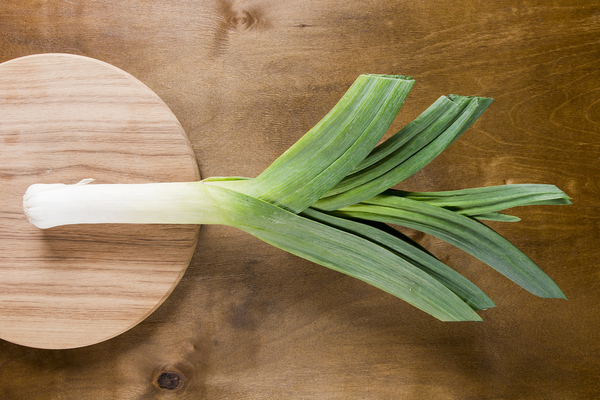Celery

Celery is a popular ingredient in the kitchen, but did you know that you can also feed it to your dog? Celery is one of the vegetables that is suitable for dogs and has many benefits. But there are also a few things you should consider before offering celery to your four-legged friend. In this article, you'll find out what celery is, what nutrients it contains, how it can help your dog and what risks it poses.
What is celery?
Celery is a plant from the umbellifer family that occurs in various forms. The best known are white celery, celeriac and cut celery. Celery has long, green stalks with leaves that are often eaten as a snack or in salads. Celeriac has a thick, round root that can be eaten cooked or raw. Cut celery has fine, herbaceous leaves that are used as a spice or in soups.
What nutrients does celery contain?
Celery is a very low-calorie vegetable that contains a lot of water. It is rich in vitamins, such as vitamins A, B and C, as well as minerals, such as potassium, calcium and iron. These nutrients can boost your dog's health by strengthening their immune system, supporting their bones and teeth, regulating their blood pressure and stimulating their digestion.
How can celery help your dog?
Celery has several positive effects on your dog that go beyond nutritional benefits.
- For example, celery can improve your dog's heart health by preventing the formation of harmful cholesterol platelets and promoting blood flow.
- Celery can also help in the fight against cancer, as it contains antioxidants and anti-inflammatory substances that can inhibit the growth of tumor cells.
- Finally, celery can also freshen your dog's breath by reducing bacteria in the mouth and stimulating salivation.
What risks does celery pose to your dog?
Celery is not toxic to your dog, but it can have some disadvantages that you should be aware of.
- Firstly, celery has a diuretic effect, which means it increases your dog's urine production. This may not be a problem in a healthy dog, but in a sick dog suffering from kidney or bladder problems, it can lead to complications.
- Also, you should not feed your dog celery in the evening, as he will wake you up in the night because he needs to go out.
- Secondly, celery can cause allergic reactions in some dogs, which can manifest as skin rashes, itching or breathing difficulties.
- If you notice that your dog shows such symptoms after eating celery, you should take him to the vet immediately.
How do you feed your dog celery?
If you want to give your dog celery, you should follow a few tips to make the vegetable tasty and safe.
- Firstly, you should always peel, cook and chop the celery before giving it to your dog. This makes digestion easier and avoids the risk of choking.
- Secondly, you should always feed the celery unseasoned, as salt or other seasonings can be harmful to your dog.
- You can feed the celery on its own or mixed in with meat and other vegetables, depending on what your dog likes.
- The recommended amount of celery for your dog depends on his size, age and health, but as a rule of thumb, you should not allow more than 10% of his daily diet to consist of vegetables.
Celery is a healthy vegetable for your dog that can bring him many benefits. It is rich in vitamins, minerals, antioxidants and other health-promoting substances that can improve his heart, immune system, digestion and breath. It can also help in the fight against cancer by inhibiting the growth of tumor cells. However, you should also take some precautions when feeding your dog celery. It can have a diuretic effect, which can be problematic in sick dogs, and it can cause allergic reactions that need to be treated immediately. You should also always peel, cook, chop and feed unseasoned celery to aid digestion and avoid potential risks.
Properties 6
Are you looking for other ingredients with a specific property?
Just click on them to find more.
If you notice any signs of hypersensitivity or poisoning in your dog, you should see your vet immediately. We are not a substitute for a vet, but we try to be as accurate as possible. Every dog reacts differently and we recommend you get a second opinion or consult your vet if in doubt.
Stay healthy and take good care of your four-legged friend!😊
Similar to Celery
Not all vegetables are suitable or tolerated by dogs. Some vegetables can even be poisonous or harmful. That's why you should always do your research before offering your dog something new. These...
Spices can aid your dog's digestion, strengthen his immune system, reduce inflammation or ward off parasites. Some spices also have an antibacterial, antiviral or antifungal effect. In addition,...
Carrots are root vegetables that belong to the umbellifer family. They have an orange color, which comes from the plant pigment beta-carotene. This is converted in the body into vitamin A, which is...
Leeks can have some health benefits for dogs when fed in small amounts. For example, leeks can: Boost the immune system as it is rich in vitamin CAid digestion as it contains fiberSupport blood...



